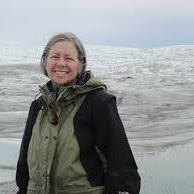Project Abstract
Cold Arctic conditions, twenty-four-hour summer sunlight combined with twenty-four-hour winter darkness, and a frozen ocean coastline for much of the year are threatening survival of Arctic communities. These communities currently rely entirely on expensive fossil fuels for their energy needs. The joint impacts of energy cost, changes in fisheries and the environment, and a young self-rule national government are intertwined in ways that are currently threatening the culture and lifestyles of people who have long called the region home. This project discovers sustainable technological innovations and identifies an achievable and affordable pathway to the future for small communities in a changing Arctic. The research identifies, creates, tests, and demonstrates cutting-edge and next-generation energy technology systems suited to cold, harsh Arctic conditions, including, for example, next-generation batteries, solar and wind technologies for polar conditions, and ocean-linked heat pumps. The discoveries will be published so that the findings will be widely available. Educational activities with the youth and schools in the Arctic will provide inquiry-based, hands-on activities for learning about renewable energy systems that are also useful in schools in the U.S. The learning activities will contribute to self-confidence needed by students to pursue community or four-year college programs for technology-oriented careers. Sustainable technological solutions will also benefit remote communities in the mid-latitudes. Availability of affordable renewable energy will enable cultural continuity, enhance health and safety, and strengthen community resilience.
An iterative, systems-based approach that is driven by stakeholder values and objectives is being used to define energy and fishery-related research needs faced by Arctic communities who rely on fishing for their food and income. Initiated by an invitation from local fishers to a Dartmouth professor, this project represents stakeholder-driven science with knowledge co-generation between community members and academics. Research by faculty, graduate and undergraduate students in this project will produce mission-relevant insights and prototypes and will enable identification of robust and resilient adaptation strategies. Engineers, scientists, students, hunter-fishers, utility managers, local government representatives, and citizens will collaborate to address challenging interdisciplinary problems in this region where planning and adaptation to environmental change is not already in place. Issues of adaptation will be pursued in ways that embrace energy self-reliance, identify an achievable and sustainable pathway to a resilient future, and contribute to capacity-building for engineering in changing conditions.
Logistics Summary
The project will identify, design, test and demonstrate cutting-edge and next-generation energy technology systems designed for polar conditions, and will identify pathways for implementation that embraces the cultural heritage and strengthens local energy independence of the people of Greenland. There will be field seasons based in Qaanaaq to 2021 to 2024 (original plans to start in 2020 were deferred due to COVID-19). In each year 5-6 team members will participate in two 2-week trips. Six team members will travel to Kangerlussuaq on the NY Air National Guard (ANG). From Kangerlussuaq they will travel roundtrip to Qaanaaq via commercial airlines and back to the US via the ANG. The team may use the Air Mobility Command/Embassy for travel through Thule (TBD) for the second field campaign out of Qaanaaq.
Season Field Site
2021 Greenland - Kangerlussuaq
2021 Greenland - Qaanaaq
2021 Greenland - Thule
2022 Greenland - Qaanaaq
2022 Greenland - Thule
2023 Greenland - Qaanaaq
2023 Greenland - Thule
2024 Greenland - Qaanaaq
2024 Greenland - Thule
Keywords
Arctic, energy, fisheries, engineering, policy
Project Location
Website
PI WebsiteDates
-Location
Avanersuaq, Greenland; Qaanaaq, GreenlandMembers
Principal Investigator

Co-Principal Investigator

Co-Principal Investigator

